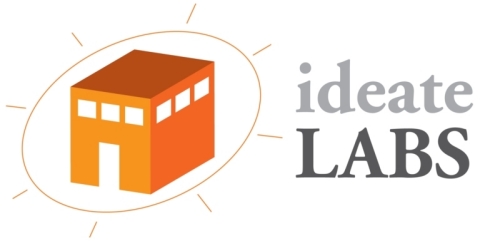IdeateLABs Announces Summary Findings of New UCLA Study of Teledentistry and the Impacts on Latinos
IdeateLABs Announces Summary Findings of New UCLA Study of Teledentistry and the Impacts on Latinos
New Study Finds Accessibility and Affordability Critical for Latinos
LOS ANGELES--(BUSINESS WIRE)--On Tuesday, IdeateLABs and the Center for the Study of Latino Health and Culture held a virtual briefing for news media and interested parties on teledentistry and its impact on the Latino community. The briefing featured Dr. David Hayes-Bautista, a distinguished Professor of Medicine and Director of the Center for the Study of Latino Health and Culture at University of California Los Angeles. Dr. Hayes-Bautista discussed the findings of a newly completed study on teledentistry and the access, affordability and safety for the Latino community.
Dr. Hayes-Bautista told briefing attendees that Latinos are 80% less likely to find a dentist in their local area. “Lack of Latino dentists, lack of insurance, and high costs makes dentistry inaccessible to Latino Communities. Teledentistry may provide access and affordable options for underserved communities,” Dr. Hayes-Bautista said.
While the full Center for the Study of Latino Health and Culture at UCLA study will be released in the coming weeks, Dr. Hayes-Bautista’s presentation is available for viewing now.
Watch Dr. Hayes-Bautista present the summary findings of the teledentistry study here.
During Tuesday’s presentation, Dr. Hayes-Bautista made the following comments about the Center for the Study of Latino Health and Culture at UCLA study findings, transcribed in part:
“This is where the events of the past three months have led us to reframe some of the work. We've been doing a lot of work and telehealth and telemedicine but now we're starting to think about how this would apply in teledentistry. And in fact, the COVID pandemic, in a matter of a very few weeks, just turned the medical world upside down in terms of using telemedicine, whereas before it was only useful in remote locations.”
“And it has made a lot of gains. Suddenly we've learned, ‘Wow, we can do telemedicine and it’s not the end of the world.’ In fact, it’s projected that telemedicine will be a $40 billion dollar industry by 2021, globally.”
“I have two words: Remember Blockbuster? Remember the same thing. You had to go to them - the hours that they were open. You can only pick from what was available. You had to pay what they charged, and then you went home to enjoy it. So, a lot of people grew up going to Blockbuster for videos. Then along came disruptive technology and Blockbuster is gone...that whole model suddenly doesn’t work...
“We seem to be moving that direction in many other industries including health, and that would include telemedicine, teledentistry...
“And of course the issue of affordability, remembering that Latinos have less discretionary income...
“So, this would all lead to increased accessibility. Again, the part for me that I find so galling is the Latino dentist shortage...
“It could be that teledentistry and tele-orthodontics can help us address these problems of lack of presence and lack of insurance and costs.
“And I think we're just at the beginning. So, this is not the end. This is only the beginning of a whole new world post COVID.
“Let’s take advantage of the new technologies that are there. Remember Blockbuster. We don’t want to be practicing Blockbuster medicine.”
ABOUT IDEATELABS
IdeateLABs is an interactive non-profit think tank that provides real time solutions to clients and partners .It’s an idea generator to policymakers, practitioners, research institutions, and stakeholders. We use real intelligence, in real time to develop and visualize policy solutions to effectively communicate solutions to policymakers. For more information, visit: http://ideate-labs.com.
Contacts
Savanna Riley
riley@ideatecal.com
